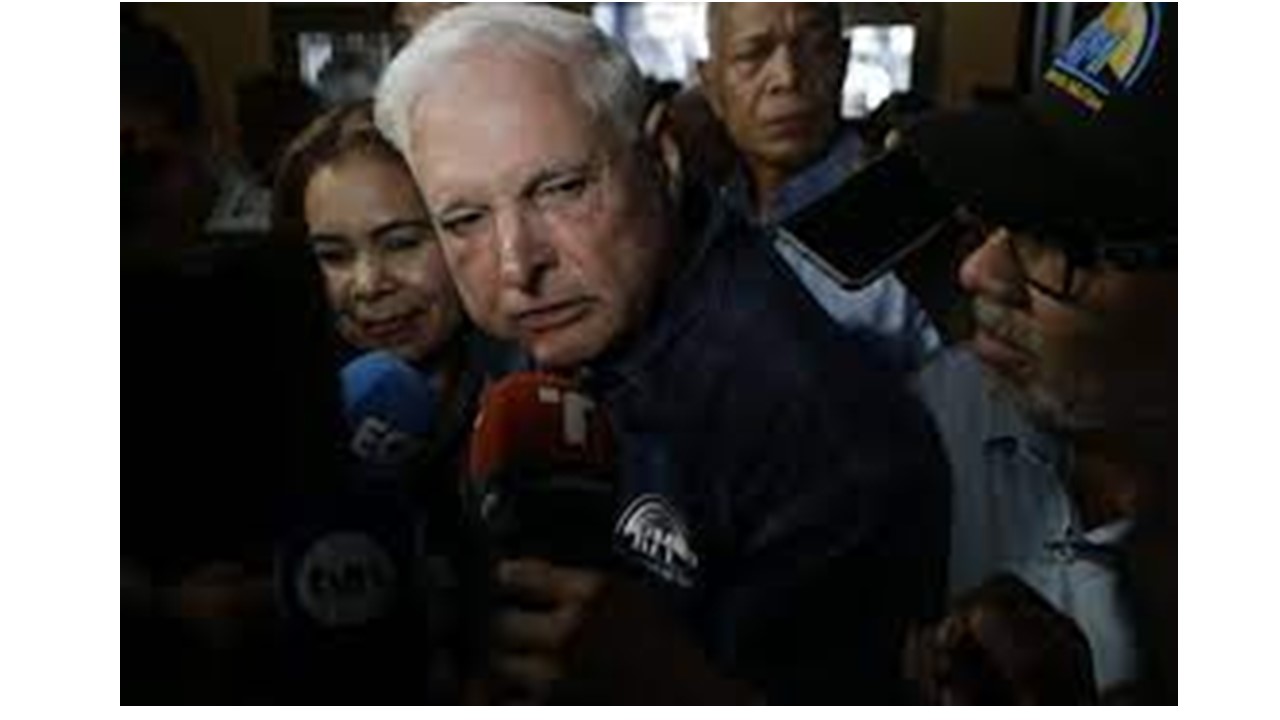Court confirms Martinelli 10-year jail term and $92 million fine
The Superior Court for Settlement of Criminal Cases confirmed Tuesday the 128-month jail sentence against former president Ricardo Martinelli for money laundering in the New Business case.
The Court ratified the fine of $19.2 million, as an accessory penalty, as well as the confiscation in favor of the State of all the shares of Editora Panamá América, SA (Epasa), its administration and facilities (movable and immovable property), since It was proven that public funds laundered through the basket account of the company New Business Services Limited were used to acquire the shares of Epasa, in December 2010, when Martinelli was president
The State already has 40% of the shares of Epasa, which belonged to Henri Mizrachi. Martinelli controls the remaining 60%; which his lawyer denies.
“ The Chamber has no doubt that Ricardo Alberto Martinelli Berrocal is a Panamanian businessman and politician with a long history in commercial businesses. He also maintained and currently maintains abundant capital, which could justify the contributions granted for Epasa's investment; However, what is verified here is the management with which Mr. Ricardo Martinelli Berrocal carried out the transactions for the purchase of Epasa, w.signed
Martinelli, who is now a presidential candidate for Realizing Goals (RM) and intends to compete in the elections on May 5, 2024, was, sentenced in July, by criminal judge Baloisa Marquínez.
The RM party, on its account on the social network Martinelli, wrote that the Superior Court ruling seeks to “invalidate my candidacy.”
The magistrates denied the appeal presented by Martinelli's defense against Judge Marquínez's sentence and confirmed the sentence of the former president and four other defendants: Janeth Vásquez, Iván Arrocha, Valentín Martínez Vásquez and Daniel Ochy, sentenced to 60, 70, 80 and 96 months in prison, respectively.
In their ruling 4, the judges also rejected several incidents of annulment presented by the former ruler's lawyers.
Mata, Hoo and Juárez maintain in their ruling that, regarding the purchase of Epasa, “ Ricardo Alberto Martinelli Berrocal was in charge of its organization, together with Henri Mizrachi Kohen, using third parties, both natural and legal, to deposit and transfer money from activities related to embezzlement and corruption of public servants, which occurred when he was President of the Republic, with the purpose of hiding, through various banking operations, their illicit origin.
In another paragraph of the 302-page ruling, the magistrates point out that “ there is testimony that allows the responsibility of Ricardo Alberto Martinelli Berrocal to be clearly established, which is supported by the extracts from the bank accounts and the report of [the expert] Eliseo Ábrego, which captured the information on the banking transactions collected in this case, expertise that allows us to understand how the money was deposited for the purchase and payment of the loans.
The funds collected in the basket account were used not only to acquire Epasa but also to pay off a loan with the Savings Bank, related to the purchase of the publisher's shares.
The funds were provided by State contractors such as FCC, Condotte Panamá, Transcaribe Trading, Grupo Clio and Excavaciones del Istmo. The contractors received the money as a supposed advance for the awarded projects; The money was finally deposited in the basket account. In his appeal, Martinelli's defense argued that having “accounts collecting funds for the purchase of the publishing house does not constitute an irregularity in the commercial world.”
Martinelli's defense complained about the non-appearance at the trial of Henri Mizrachi and Riccardo Francolini, who have an effective collaboration agreement with the prosecution, validated by Judge Marquínez.
Judge Marquínez also acquitted 10 defendants. The Specialized Prosecutor's Office against Organized Crime appealed the acquittal of six of them, but the Superior Court did not consider this appeal because one of them (Vernon Salazar, legal representative of the company Condotte Panamá) presented protection of constitutional guarantees, which was admitted on October 18 by Judge Cecilio Cedalise.
